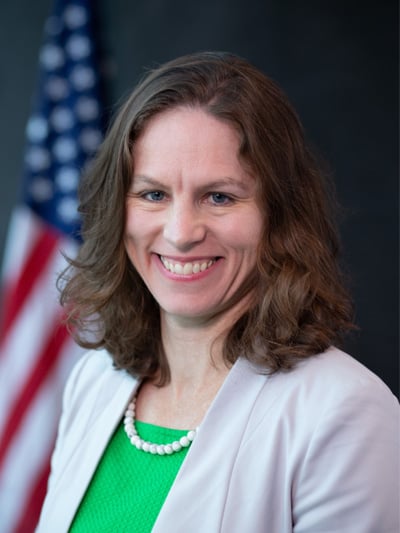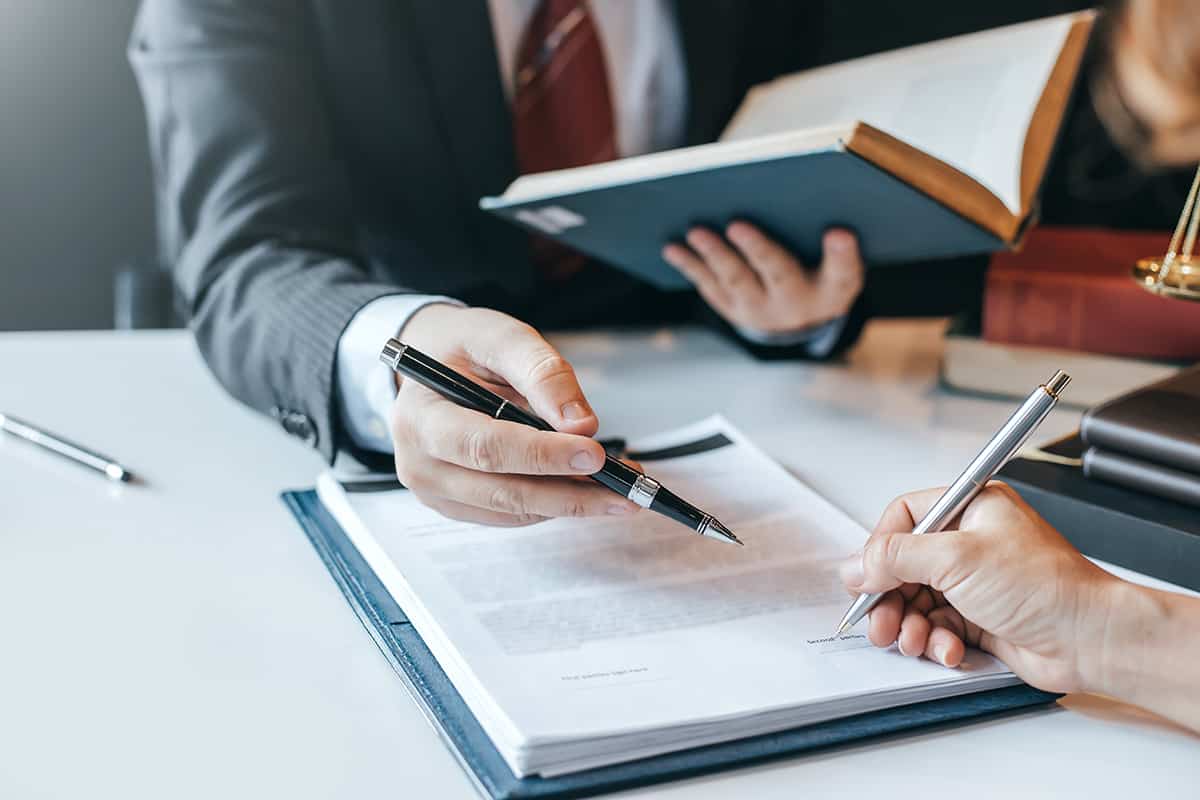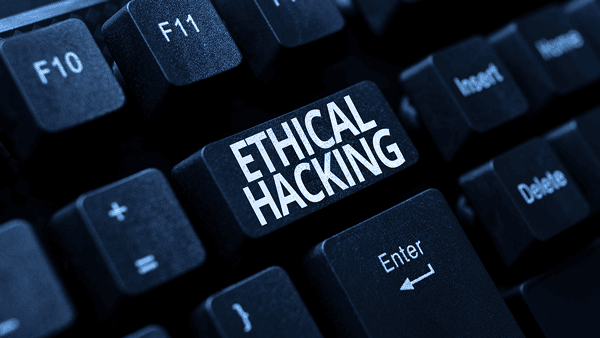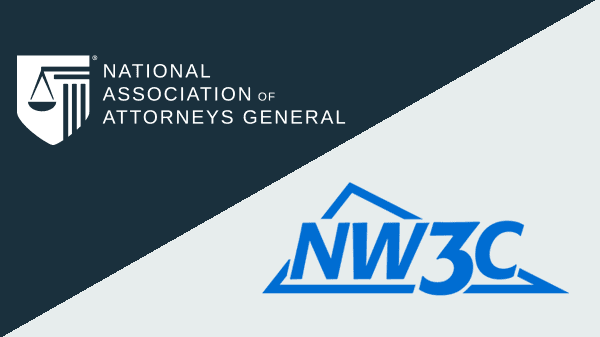-
 Coeditor, The Anticorruption Manual: A Guide for State ProsecutorsDirector, NAGTRI Center for Ethics and Public Integrity
Coeditor, The Anticorruption Manual: A Guide for State ProsecutorsDirector, NAGTRI Center for Ethics and Public Integrity
Amie Ely, Director, NAGTRI Center for Ethics and Public Integrity and; NAGTRI Program Counsel
To assist in carrying out the mission of the Center for Ethics & Public Integrity (CEPI),1 I have been reaching out to attorneys who address ethics issues in their attorney general’s office (AGO). This outreach has included identifying these experts; developing and distributing an ethics survey; planning a summit and training for the experts; and sending email requests for information on topics requested by individual ethics experts.
AGOs from 43 states and several territories2 have identified their “ethics gurus,” over half of whom participated in the ethics survey. That survey will be used to ensure that CEPI and NAGTRI are providing responsive, cutting-edge ethics training, beginning with a National Ethics Summit & Training in late October 2017.
I have also solicited information about specific ethics issues, at the request of individual ethics gurus, to assist AGOs that are considering developing specific ethics policies or are engaging in litigation about ethics issues. One recent solicitation involves the use of deception in undercover investigations that are supervised by prosecutors.
Survey Says …
Twenty-six AGOs completed the ethics survey.3 It asked several preliminary questions about the resources AGOs devoted to ethics issues, and then asked the gurus to identify the ethics areas that regularly arose in their offices. The survey also requested guidance about topics to address in a training of the ethics gurus.
I learned that most of the gurus cover all ethics issues in their offices and also have other duties. Only three reported spending three-quarters or more of their time on ethical issues; 19 spend one-quarter or less of their time on ethics. The majority of gurus are responsible for administrative, civil, and criminal ethics issues, but a few (particularly in offices with limited or no criminal jurisdiction) focus entirely on administrative and civil issues.
In a response that was unsurprising, given the wide-ranging responsibilities of the typical AGO, all of the gurus who responded identified conflicts of interest as an issue that arose in their offices. Most (24) said that conflicts of interest within the office were more common; three reported that opposing counsel’s conflicts of interest were more frequent.
Most (23) also reported that issues involving specific rules of professional conduct typically arose in their office. Over half identified Rules 1.7, 1.10, and 1.11 (all of which relate to representation of clients) and Rule 4.2 (relating to contacts with current or former employees) as rules they typically encounter. Ten identified Rule 8.4(c), which requires candor and—as discussed below—can be an issue in undercover operations that are managed by prosecutors, as a rule that they confront.
Most offices (20) had a code of conduct and/or policies on conflicts of interest. Eighteen offices have policies setting forth methods to “wall off” from a specific case a person with a conflict of interest. Only nine offices reported policies regarding discovery/ disclosure, and five had policies addressing parallel proceedings.
Several offices reported having internal ethics committees that could be consulted if ethics issues arose, and/or consulting with either an outside ethics commission or bar counsel. Relatedly, in some states (11), attorneys from an AGO could also be called upon to provide advice to their state’s ethics body.
Suggestions of areas for the October training included the following:
- Potential and actual conflicts of interest, including:
- Where the AGO once represented an entity but is now suing that entity
- Internal conflicts of interest related to outside activities (including volunteering) and employment
- Walling off attorneys in different parts of the office
- Representing multiple state defendants
- Discovery issues, including whether there are Brady-like requirements in administrative/ regulatory proceedings
- Use of deception
- Candor to the court
- Protection of attorney-client privilege and under the work product doctrine
- Class action issues, such as communicating with members of a class who are state employees
- Use of office letterhead
- AG taking positions different from those of a client agency
- Unauthorized practice of law by opposing parties who are not attorneys
- Prosecutorial discretion
- Attorney general as client
- Rule of Professional Conduct 4.3 issues, particularly when hearing officers expect government attorneys to explain procedural issues to unrepresented persons who are litigating against the government
- Whether a decision made by an internal ethics committee is akin to, for purposes of Rule 5.2, a decision of a supervisory lawyer
One Recent Ethics Issue: The Use of Deception in Undercover Investigations
I have also received and transmitted requests for information about ethics issues that AGOs are addressing. One example comes from the Colorado Attorney General’s Office,4 which recently asked its state supreme court to determine if Colorado Rule of Professional Conduct 8.4(c) permits prosecutors to supervise otherwise lawful undercover operations that involve subterfuge. That rule provides that “It is professional misconduct for a lawyer to… engage in conduct involving dishonesty, fraud, deceit or misrepresentation.”5
Background
To contextualize Colorado’s Rule 8.4(c) issue, some background is in order. In December 2016, the Jefferson County (Colorado) District Attorney’s Office disbanded a successful child sex offender investigations unit after a defendant alleged that prosecutors had behaved unethically by supervising an online undercover operation.6 The Child Sex Offender Internet Investigations Unit—CSOII, but nicknamed Cheezo (complete with an eponymous Tony-the-Tiger-like mascot)—had been housed in the district attorney’s office for a decade, and convicted over 900 online sexual predators. To accomplish this, CSOII detectives posed as children online and communicated with adults who proposed engaging in sexual activity. A defendant convicted in 2012 of attempted sexual exploitation of a child (who unsuccessfully appealed his conviction) made an ethics complaint about prosecutors’ involvement in the investigators’ use of deception in his case.
The Colorado Office of Attorney Regulation Counsel (ARC) concluded that the defendant’s allegations were sufficient to trigger a formal investigation of a violation of Rule 8.4(c). While ARC eventually dismissed the complaint, it was only after the district attorney dissolved CSOII’s investigative arm, and its undercover investigations ceased.
While CSOII (and Cheezo) fortunately found a new home in the Jefferson County Sheriff’s Office,7 concerns remained about the ethics board’s intimation that prosecutors providing guidance to law enforcement investigations using subterfuge would violate Rule 8.4(c). As a result, Colorado Attorney General Cynthia H. Coffman ceased all undercover operations in her office. Her office quickly sought a writ of injunction8 from the Colorado Supreme Court “enjoining ARC from proceeding against a government lawyer solely for supervising or providing legal advice to assist with a lawful undercover investigation.”9
On June 5, 2017, the Colorado Supreme Court denied the request for a writ. At the same time, it posted a notice of expedited rulemaking for 8.4(c), proposing the addition of the underlined language:
(c) [It is professional misconduct for a lawyer to…] engage in conduct involving dishonesty, fraud, deceit or misrepresentation, except that a lawyer may advise, direct, or supervise others, including clients, law enforcement officers, or investigators, who participate in lawful investigative activities.
Analysis
The American Bar Association (ABA), federal law enforcement agencies, most if not all federal courts, and legal ethics experts all support prosecutors’ involvement in lawful undercover operations. This firmly suggests that the ABA and others already recognize that prosecutors’ supervision of lawful covert operations—including that involving subterfuge by law enforcement officers or confidential informants—is permitted under Model Rule of Professional Code 8.4(c), notwithstanding the absence of explicit language allowing such oversight. These experts all share in the belief that “a rule forbidding a lawyer’s involvement while continuing to allow undercover operations operates to prevent lawyers from serving as a brake or restraint on over-zealous undercover operations by lay-investigators.”10
The ABA’s Standards on Prosecutorial Investigation recommend that prosecutors supervise undercover law enforcement operations and provide guidance about factors the prosecutors should consider when “deciding whether to use or to advise the use of” such operations.11 The Standards also suggest that, once such an investigation has commenced, prosecutors “consult” with the law enforcement agents involved in the undercover investigation “on a regular basis” regarding “the continued propriety of the operation and the legal sufficiency and quality of the evidence that is being produced by the operation” and regularly assess the risks and benefits of the undercover operation.12 Finally, the Standards contemplate that undercover officers might need to be involved in illegal activity to accomplish the goals of the investigation, but recommend that prosecutors “seek to avoid or minimize” the risks of such involvement and provide guidance to those officers “about authorized participation in otherwise criminal conduct.”13 These ABA Standards provide similar guidance to prosecutors involved in operations that utilize confidential informants.14
Federal guidance for prosecutors and law enforcement also contemplates that prosecutors will oversee undercover investigations. For example, the Federal Bureau of Investigation requires continuing consultation with “the Appropriate Federal Prosecutor” (defined as a U.S. attorney or a section chief of the Criminal Division of the Department of Justice) “upon initiating and throughout the course of any undercover operation.”15 The FBI supervisory special agent in supervising such an investigation should consult “particularly with respect to the propriety of the operation and the legal sufficiency and quality of evidence that is being produced by the activity.”16
Federal courts have generally approved of undercover operations by law enforcement and made clear that it is appropriate for prosecutors to supervise such investigations. For example, the Tenth Circuit recently discussed generally the approval by other courts and ethics bodies of prosecutors overseeing undercover operations, as such investigations are “authorized by law.”17 That court also cited a prior Tenth Circuit decision that concluded that Colorado would permit prosecutors to be involved in undercover investigations.18
At least one state court has, however, adopted a restrictive view of Rule 8.4(c). In In re Gatti,19 the Oregon Supreme Court rejected calls by a chorus of prosecutors to recognize a prosecutorial exception to the constraints in 8.4(c). As a result of that decision, the Rules of Professional Conduct in Oregon were later amended to explicitly permit attorneys to “supervise lawful covert activity in the investigation of violations of civil or criminal law or constitutional rights, provided the lawyer’s conduct is otherwise in compliance with these Rules of Professional Conduct.”20
Of course, there are—and should be—limits to what investigators, confidential informants, and prosecutors can do in an undercover investigation, and prosecutors’ offices should consider developing policies to ensure that this powerful investigative tool is wielded thoughtfully. In a seminal case in the Second Circuit, United States v. Hammad,21 the investigation included a fake grand jury subpoena that the prosecutor drafted, and the judges were most displeased with that technique. Even so, when the court denied the government’s petition for a rehearing, it restated that it was not “requir[ing] that government investigatory agencies refrain from all use of informants to gather information.”22 It may be useful to add that, post-Hammad, the practice in the Second Circuit developed into one where federal prosecutors were comfortable supervising pre-indictment undercover operations. That said, this oversight was exercised carefully.
Finally, legal ethics experts recommend that prosecutors supervise undercover operations. As one example, a private attorney in Colorado bemoaned “[t]he offensive use of the Colorado Rules of Professional Conduct by criminal defense lawyers to shackle CHEEZO” and said that the reassignment of that unit to the sheriff’s office “ha[d] the unfortunate consequence of relieving any public pressure which might have caused the Colorado Supreme Court to reassess its dogmatic approach to Rule 8.4(c), and to consider public policy considerations which favor a role for attorneys in advising clients, law enforcement, and investigators engaged in covert operations.”23
Next Steps
The Colorado Attorney General’s Office welcomes input from other prosecutors and legal ethics experts, particularly those in the following states and the District of Columbia—all of which have amended their Rules of Professional Conduct to, in one form or another, explicitly permit lawyers to supervise lawful undercover activities: Alabama (Rule 3.8);24 Alaska (comment to 8.4(c)); District of Columbia (comment to 4.2); Florida (8.4(c) and comment); Iowa (comment to 8.4(c)); Michigan (8.4(b)); Missouri (8.4(c)); North Carolina (comment to 4.2 and comment to 8.4(c)); North Dakota (8.4(c)); Ohio (comment to 8.4(c)); Oregon (8.4(a)(3) and 8.4(2)); South Carolina (comment to 4.1); Tennessee (comment to 8.4(c)); Virginia (8.4(c)); Wisconsin (comment to 4.1); and Wyoming (comment to 3.8).
Conclusion
The tools we can use to identify, analyze, and address ethics issues—including the survey, the training, and the email solicitations—allow CEPI to harness the expertise and experiences of gurus in AGOs to benefit the entire attorney general community. Establishing a community of committed ethics experts ensures that, when the need arises, the Center can solicit information and guidance from these gurus. This network has permitted NAGTRI to solicit information about Rule 8.4(c) (and its analogues) from prosecutors around the country in an effort to assist the Colorado Attorney General’s Office. I am hopeful that the conversations among the ethics gurus will continue, and I encourage any interested AGO to contact me with any questions or suggestions.
Endnotes
- Its mission is to “provide training, research, and technical assistance to prosecutors involved in the fight against corruption, and to provide training and other resources on the ethical practice of law by government attorneys.”.
- States for which I am still seeking ethics gurus are: Alabama, Arkansas, Delaware, Florida, Iowa, Minnesota, Oklahoma, and South Carolina. I also seek gurus for the following territories: American Samoa, Puerto Rico, and the U.S. Virgin Islands.
- Several offices have more than one “guru,” and one of those offices completed the survey twice; as a result, I have 27 responses. I thank the gurus who took the time to complete the survey. If your office has not participated or you would like more information about the survey, please feel free to reach out to me at aely@naag.org.
- Thanks to Jan Michael Zavislan, senior counsel in the Consumer Protection Section at the Colorado Attorney General’s Office, for providing information about Colorado’s writ. Information not otherwise cited is from the Colorado AGO’s submission to its Supreme Court or from Mr. Zavislan.
- Rule 8.4(a) makes clear the Rules can be violated “through the acts of another.”.
- Kieran Nicholson, Rules Complaint Leads JeffCo DA to Disband Child Sex Offender Internet Unit, Denv. Post, Jan. 12, 2017, at http://www.denverpost.com/2016/12/16/jeffco-da-child-sex-offender-internet-cheezo/.
- Press Release, Jefferson County Sheriff’s Office, Jefferson County Sheriff’s Office Welcomes Cheezo Program (Feb. 2, 2017), at /http://jeffco.us/sheriff/news/2017/jefferson-county-sheriff’s-office-welcomes-cheezo-program.
- Colo. App. R. 21.
- Pet. at 8 (May 5, 2017).
- Ronald D. Rotunda & John S. Dzienkowski, Legal Ethics: The Lawyer’s Deskbook on Professional Responsibility § 4.2-1(b) n.14 (2007–2008).
- ABA Standards on Prosecutorial Investigations, Std. 2.3(c), (d), at http://www.americanbar.org/publications/criminal_justice_section_archive/crimjust_standards_pinvestigate.html#2.3.
- Id. at 2.3(e).[13] Id. at 2.3(f).
- Id. at 2.4.
- The Att’y Gen.’s Guidelines on Federal Bureau of Investigation Undercover Operations, Part VI(C), p. 17-18 (2013), at https://www.justice.gov/sites/default/files/ag/legacy/2013/09/24/undercover-fbi-operations.pdf.
- Id. at 18.
- United States v. Elliott, 2017 U.S. App. LEXIS 5896 (Apr. 5, 2017).
- Id. at 5896 at 21 n. 7 (citing Jones v. Union Carbide Corp., 577 F.3d 1234, 1245 (10th Cir. 2009) (“In our view . . . , it would be too adventurous on our part to assume that Colorado would depart from the Restatements”).
- 8 P.3d 966 (Or. 2000).
- Ore. R. of Prof’l Conduct 8.4(b).
- 846 F.2d 854 (2d Cir. 1988).
- United States v. Hammad, 855 F.2d 36, 37 (2d Cir. 1988) (quoting Hammad, 846 F.2d at 860 (quoting United States v. Jamil, 707 F.2d 638, 645 (2d Cir. 1983))).
- Charles F. Luce, Jr., A Rule Against Pretext, Taken Out of Context, Law360 (Feb. 15, 2017), https://www.law360.com/articles/890753/a-rule-against-pretext-taken-out-of-context.
- Each of the numbers that follow the state names reflect the state’s Rule of Professional Conduct that was amended to permit prosecutors to supervise undercover investigations.





